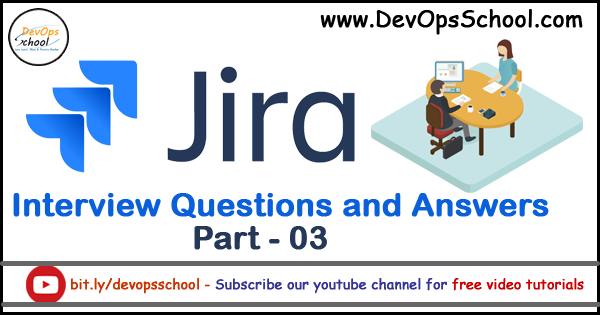
How would you share a query with another JIRA user?
- Send the JIRA query in as text in an email
- Create a dashboard with the query and share the dashboard
- Share the query by clicking the “share query” button in the search pane.
- Create a filter and share the filter (Ans)
What does it mean that the workflow scheme is active?
- It is in use and you have limited posibilites for change (Ans)
- The workflow scheme is used by more than one project
- The workflow scheme is obsolete
- It is in use but you can still make any change
What is not true about transitions?
- Transitions cannot be bi-directional (Ans)
- You can trigger webhooks with transitions
- A transition is needed in order to change status
- You can only several transitions pr step
Which is a valid JQL?
- order by summary, project=ART
- project=ART and or project=MISC
- select * from project=ART
- project=ART order by summary desc (Ans)
You should avoid using
- Work board
- Classic boards (Ans)
- Report board
- Plan board
Start by creating the following type of tickets in Jira to create your backlog (Hint: INVEST)
- Epic
- Task
- Bug
- Story (Ans)
Use this report to determine bottlenecks
- Epic report
- Cumulative flow diagram (Ans)
- Burndown chart
- Sprint report
The start-stop-continue approach is used during?
- Sprint Review
- Sprint Retrospective (Ans)
- Daily Scrum
- Requirement planning
What type of project should we create in Jira for the purpose of this training?
- Agile Scrum (Ans)
- Kanban
- Jira classic
- Gantt-chart project
The following is only a listener during the Daily Scrum because is involved and not committed?
- Executive team (Ans)
- Product Owner
- Team Member
- Scrum Master
You create sprints in
- Release mode
- Plan mode (Ans)
- Work
- Project Overview
The following is the old way of development where devs went into a room for months and came out with an application
- Feature driven development
- Scrum
- Test driven development
- Waterfall (Ans)
The following is an involved team member
- Team Member
- Scrum Master
- Project Manager (Ans)
- Product Owner
The key principle of scrum is
- Start with what you do now
- Plan all your work and schedule for the duration of the project
- Recognize that requirements can change (Ans)
- Deliver a new version to customers every 2 to 4 weeks
Where do you use primarily Report Mode?
- Sprint Planning Meeting
- Sprint Retrospective (Ans)
- Daily Scrum
- Sprint Review
You release a version in
- Work mode (Ans)
- Plan mode
- Project Overview
- Release mode
To grant a user permission to use JIRA you go to:
- Application Access (Ans)
- Roles
- Groups
- Permissions
A Role within JIRA is:
- A point-in-time for a project. They help you schedule and organize your releases
- Created within Permission Schemes, which are then assigned to specific projects
- A way to manipulate the display and behavior of issue fields
- A flexible way to associate users and/or groups with particular projects (Ans)
The first step to implement Kanban is:
- Assign new roles to team members
- Map out your current process
- Not change anything (Ans)
- Measure impact
In both Kanban and Scrum you make people:
- Limit their work in progress
- Meet on – daily basis
- – core part of the process (Ans)
- Assume new roles according to their contribution
I’m a DevOps/SRE/DevSecOps/Cloud Expert passionate about sharing knowledge and experiences. I am working at Cotocus. I blog tech insights at DevOps School, travel stories at Holiday Landmark, stock market tips at Stocks Mantra, health and fitness guidance at My Medic Plus, product reviews at I reviewed , and SEO strategies at Wizbrand.
Please find my social handles as below;
Rajesh Kumar Personal Website
Rajesh Kumar at YOUTUBE
Rajesh Kumar at INSTAGRAM
Rajesh Kumar at X
Rajesh Kumar at FACEBOOK
Rajesh Kumar at LINKEDIN
Rajesh Kumar at PINTEREST
Rajesh Kumar at QUORA
Rajesh Kumar at WIZBRAND

 Starting: 1st of Every Month
Starting: 1st of Every Month  +91 8409492687
+91 8409492687  Contact@DevOpsSchool.com
Contact@DevOpsSchool.com
